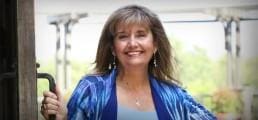What is Forgiveness?
What is real forgiveness, and what does that mean? For me, real forgiveness is what I call in my soon-to-be-published book, the “Full Spectrum Forgiving” phase. This is the heart of the Forgiveness process. Full Spectrum Forgiving means forgiving everyone and everything– self and others. This is not automatic. We must do the work to get there!
In this phase, we begin to disengage from the anger and hurt as we bring to awareness the beliefs and misconceptions that were formed as a result of our experience. We begin to realize that the stories in our heads are only that – stories – and we can let go and detach from these dramas that have held us hostage to our hurts and resentments.
Letting go requires unearthing and acknowledging judgments of self and others, however. Only when we bring these judgments into awareness can we loosen their hold. Once this baggage has been released, it’s possible to see our hurts from a different perspective. In fact, the mind might say that there is no good reason to forgive, but the heart will awaken us to the possibility. And when there are no judgments – full spectrum, 360-degree forgiving of ourselves and others – the actual moment of forgiveness can be quick, like a moment when a key finally unlocks a stuck door. At times, though, it will happen in small bits and pieces over a period of time. We cannot surrender to forgiveness until we are ready to do it from an authentic, deeply felt place.
How do we know we have a judgment? Every time you say “I should”, “they/he/she should” means you are holding a judgment. Play with the idea, and every time you start “shoulding”, back up, take a deep breath and explore what concepts of right and wrong are underneath the should.
Full Spectrum Forgiveness also means that while genuine reconciliation may be part of the process, forgiveness is ultimately a gift we give ourselves, not someone else.
What is the basis of this Full Spectrum Forgiving process?
This process has 4 steps :
- Identification of judgments (are you “shoulding” yourself and/or others?)
- Identifying the wound
- Forgiveness and self-forgiveness affirmations
- Reframing the incident.
Once you start living a forgiving life, you can start feeling the liberation people feel when they experience true forgiveness. This is often life-changing. And this freedom can become a way of life. As my clients have discovered, inner freedom can be experienced even in the confinement of a prison.
How do we know if we’re free from the past? When we can remember an old hurt without feeling angry, anxious, or agitated, we know that the chains have been cut. And when we have an experience of the inner freedom that releasing judgments provides, we want more of it.
So I encourage you to immerse yourself in the healing, liberating process of “Full Spectrum Forgiveness” now. If not now, when?
Clara Naum, MA



